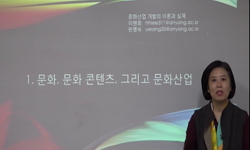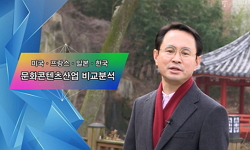While there are many ways to chart the various paths posthumanist thinking takes, posthumanism has something to do with questioning humanism and overcoming the binary oppositions upon which humanist thinking is based. Humanism, in its anthropocentric ...
http://chineseinput.net/에서 pinyin(병음)방식으로 중국어를 변환할 수 있습니다.
변환된 중국어를 복사하여 사용하시면 됩니다.
- 中文 을 입력하시려면 zhongwen을 입력하시고 space를누르시면됩니다.
- 北京 을 입력하시려면 beijing을 입력하시고 space를 누르시면 됩니다.
https://www.riss.kr/link?id=A104915211
-
저자
강지현 (한성대학교)
- 발행기관
- 학술지명
- 권호사항
-
발행연도
2015
-
작성언어
Korean
-
주제어
The Repossession Mambo ; Repo Men ; Posthumanism ; Culture Industry ; Artiforg ; 리포제션 맘보 ; 리포맨 ; 포스트휴머니즘 ; 문화산업 ; 인공장기
-
등재정보
KCI등재
-
자료형태
학술저널
- 발행기관 URL
-
수록면
21-39(19쪽)
-
KCI 피인용횟수
0
- 제공처
- 소장기관
-
0
상세조회 -
0
다운로드
부가정보
다국어 초록 (Multilingual Abstract)
Katherine Hayles points out, we have always been posthuman.
Posthumanism rejects a strict binary opposition between a human subject and an instrumental technological tool for the ends of the human and shows that the human is substantially entwined with technology. The symbiotic relationship between the human and technology causes the human to feel attracted to technology but it causes the human to be gripped with fear of being displaced by technology at the same time.
Science fiction literature and films show the attraction to technology and the fear of technology. Science fiction chooses to go back to humanism and the ‘true’ human nature to take care of the fear of technology when the unpleasant posthuman future is exposed. The anonymous narrator in a novel The Repossession Mambo and Remy in a movie Repo Men are no exception. Both of them cling to what makes the human as the human to figure out the true human nature. The way The Repossession Mambo and Repo Men appropriate posthumanism demonstrates that we need to understand the posthuman to know the human better and that understanding the posthuman is another way of understanding the human.
While there are many ways to chart the various paths posthumanist thinking takes, posthumanism has something to do with questioning humanism and overcoming the binary oppositions upon which humanist thinking is based. Humanism, in its anthropocentric from, is based on the idea that the human being is defined in terms that are radically different from other non-human entities such as animals, monsters, and cyborgs and that human being has a privileged role to play in existence. When Descartes writes about what it means to be human, the truth of the human lies on the rational mind, which is entirely distinct from the body. Yet these binary oppositions simply do not hold in an era where the binary opposition between human and technology is breaking down. As biotechnology and technology engineering have been triumphantly developed, people have chosen to use technology and become cyborgs, which shows how and why the humanist division between the human and other non-humans no longer holds. As one of the known posthumanists N.
Katherine Hayles points out, we have always been posthuman.
Posthumanism rejects a strict binary opposition between a human subject and an instrumental technological tool for the ends of the human and shows that the human is substantially entwined with technology. The symbiotic relationship between the human and technology causes the human to feel attracted to technology but it causes the human to be gripped with fear of being displaced by technology at the same time.
Science fiction literature and films show the attraction to technology and the fear of technology. Science fiction chooses to go back to humanism and the ‘true’ human nature to take care of the fear of technology when the unpleasant posthuman future is exposed. The anonymous narrator in a novel The Repossession Mambo and Remy in a movie Repo Men are no exception. Both of them cling to what makes the human as the human to figure out the true human nature. The way The Repossession Mambo and Repo Men appropriate posthumanism demonstrates that we need to understand the posthuman to know the human better and that understanding the posthuman is another way of understanding the human.
참고문헌 (Reference)
1 Lyotard, Jean Francois, "포스트모던의 조건" 민음사 1979
2 Herbrechter, Stefan., "부채인간: 채무자를 만들어내는 사회" 메디치 2012
3 Woolf, Cary, "What is Posthumanism?" U of Minnesota P 2010
4 Rock, Melanie J., "Toward Stronger Theory in Critical Public Health : Insights from Debates Surrounding Posthumanism" 24 (24): 337-348, 2014
5 Badmington, Neil, "Theorizing Posthumanism" 53 (53): 10-27, 2003
6 Garcia, Eric, "The Repossession Mambo" Harper 2009
7 Peterson, Christopher, "The Posthumanism to Come" 16 (16): 127-141, 2011
8 Foucault, Michel, "The History of Sexuality. Vol. 1" Vintage 133-159, 1978
9 Heise, Ursula K., "The Blackwell Companion to American Literature" Blackwell 454-468, 2011
10 Bukatman, Scott, "Terminal Identity : The Virtual Subject in Postmodern Science Fiction" Duke UP 1993
1 Lyotard, Jean Francois, "포스트모던의 조건" 민음사 1979
2 Herbrechter, Stefan., "부채인간: 채무자를 만들어내는 사회" 메디치 2012
3 Woolf, Cary, "What is Posthumanism?" U of Minnesota P 2010
4 Rock, Melanie J., "Toward Stronger Theory in Critical Public Health : Insights from Debates Surrounding Posthumanism" 24 (24): 337-348, 2014
5 Badmington, Neil, "Theorizing Posthumanism" 53 (53): 10-27, 2003
6 Garcia, Eric, "The Repossession Mambo" Harper 2009
7 Peterson, Christopher, "The Posthumanism to Come" 16 (16): 127-141, 2011
8 Foucault, Michel, "The History of Sexuality. Vol. 1" Vintage 133-159, 1978
9 Heise, Ursula K., "The Blackwell Companion to American Literature" Blackwell 454-468, 2011
10 Bukatman, Scott, "Terminal Identity : The Virtual Subject in Postmodern Science Fiction" Duke UP 1993
11 Hayles, N. Katherine, "How We Became Posthuman : Virtual Bodies in Cybernetics, Literature, and Informatics" U of Chicago P 1999
12 Nussbaum, Martha C, "Cultivating Humanity : A Classical Defense of Reform in Liberal Education" Harvard UP 2003
13 Hayles, N. Katherine, "Afterword: The Human in the Posthuman" 53 (53): 134-137, 2003
동일학술지(권/호) 다른 논문
-
식민지 근대 도시의 소외 계층에 대한 현실적 투사와 그 전복적 비전 제시: 제임스 조이스의『더블린 사람들』과박태원의『천변풍경』
- 한국외국어대학교 영미연구소
- 이영심
- 2015
- KCI등재
-
정보 시대 초국가적 미디어의 재현과 지식/앎: 루쓰 L. 오제키의 『나의 고기 해』
- 한국외국어대학교 영미연구소
- 이경란
- 2015
- KCI등재
-
- 한국외국어대학교 영미연구소
- 이강훈
- 2015
- KCI등재
-
Multiple Agree to Double Objects in English
- 한국외국어대학교 영미연구소
- 홍선호
- 2015
- KCI등재
분석정보
인용정보 인용지수 설명보기
학술지 이력
| 연월일 | 이력구분 | 이력상세 | 등재구분 |
|---|---|---|---|
| 2026 | 평가예정 | 재인증평가 신청대상 (재인증) | |
| 2020-01-01 | 평가 | 등재학술지 유지 (재인증) |  |
| 2017-01-01 | 평가 | 등재학술지 유지 (계속평가) |  |
| 2014-01-13 | 학술지명변경 | 한글명 : Journal of British & American Studies -> 영미연구외국어명 : 미등록 -> Journal of British & American Studies |  |
| 2013-01-01 | 평가 | 등재 1차 FAIL (등재유지) |  |
| 2010-01-01 | 평가 | 등재학술지 선정 (등재후보2차) |  |
| 2009-01-01 | 평가 | 등재후보 1차 PASS (등재후보1차) |  |
| 2008-01-01 | 평가 | 등재후보 1차 FAIL (등재후보1차) |  |
| 2007-01-01 | 평가 | 등재후보학술지 유지 (등재후보1차) |  |
| 2005-01-01 | 평가 | 등재후보학술지 선정 (신규평가) |  |
학술지 인용정보
| 기준연도 | WOS-KCI 통합IF(2년) | KCIF(2년) | KCIF(3년) |
|---|---|---|---|
| 2016 | 0.17 | 0.17 | 0.18 |
| KCIF(4년) | KCIF(5년) | 중심성지수(3년) | 즉시성지수 |
| 0.16 | 0.15 | 0.462 | 0.15 |




 스콜라
스콜라







